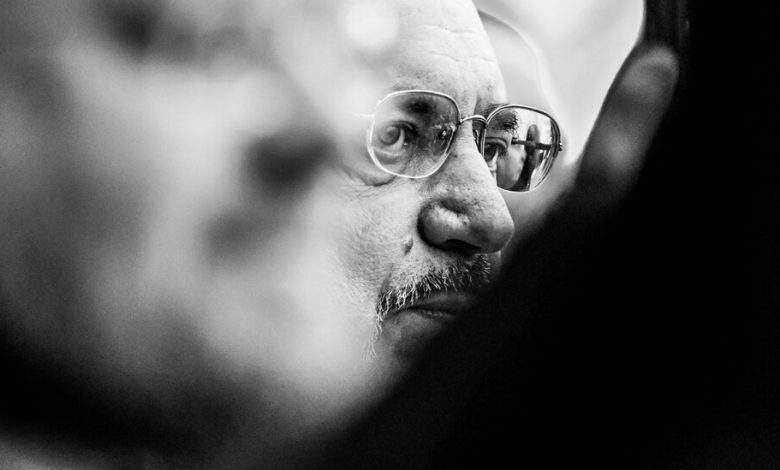Putin’s Puppets Are Coming to Life

President Vladimir Putin has always made expert use of puppets. These are regime-friendly politicians who, at the Kremlin’s behest or with its blessing, pose as opposition candidates but never stray into genuinely challenging territory. This system has existed for a long time — at least since Mr. Putin’s first re-election in 2004 — and has always worked perfectly: It maintains the facade of Russia’s imitation democracy. But in the run-up to the presidential election in March, the arrangement seems to have broken down. Mr. Putin’s puppets have begun to come to life.
A month ago, many Russian voters had never even heard of Boris Nadezhdin. Today, after a wildfire candidacy that caught the imagination of the nation, he is the country’s second-most-popular politician. Before his sudden rise to fame, the most noteworthy part of Mr. Nadezhdin’s biography was that he worked with Sergei Kiriyenko and was a member of his liberal parliamentary group. Mr. Kiriyenko, who was prime minister for less than a year in 1998, forswore liberal politics to become a key figure in Mr. Putin’s administration. As the president’s deputy chief of staff, he is now responsible for the country’s electoral campaigns. It is he who decides who will be allowed to participate in them.
In his role, Mr. Kiriyenko has often relied on political puppets. In 2018, for example, he offered Ksenia Sobchak, a popular journalist and daughter of a former mayor of St. Petersburg who had been Mr. Putin’s boss, the chance to run for president. Friends, including me, discouraged Ms. Sobchak from taking him up on the obviously suspect offer, but she agreed. She claimed that it was important to participate in debates and address taboo issues on state television. In the end, Ms. Sobchak won less than 2 percent of the vote. This was evidently Mr. Kiriyenko’s plan. The result was meant to humiliate the liberal, pro-Western middle class that Ms. Sobchak represented, showing that their votes don’t matter and that they could be disregarded.
This year, Mr. Nadezhdin, 60, appeared destined for a similar role. Like Ms. Sobchak, he is well known to television audiences. In recent years, he has regularly appeared on television chat shows, playing the role of a pro-Western liberal. In these contrived settings, he was one of the few people who would speak critically of Mr. Putin and contemporary Russia. But each time, of course, he was convincingly defeated by more numerous and more eloquent propagandists. However sincere his convictions, Mr. Nadezhdin took part in the charade.
Mr. Nadezhdin publicly stated that he had not discussed his candidacy with his old friend Mr. Kiriyenko. But it is hard to believe him. According to sources close to the Kremlin, who spoke on the condition of anonymity to discuss sensitive matters, Mr. Kiriyenko himself greenlit the whole thing. Mr. Nadezhdin was considered controlled, nonthreatening and likely to get that same paltry percentage of the vote — once again pointing out to Mr. Putin’s opponents their insignificance. It would be a win-win.
But the campaign did not go according to plan. After Mr. Nadezhdin declared himself the only antiwar candidate in the contest, calling Mr. Putin’s invasion of Ukraine a “fatal mistake,” tens of thousands of people lined up in Russian cities across to country to sign up in support. (A presidential candidate needs 100,000 signatures to be registered to run.) The lines for Mr. Nadezhdin were a sensation. In the draconian atmosphere of wartime Russia, they became the only way to legally protest against the war.
We are having trouble retrieving the article content.
Please enable JavaScript in your browser settings.
Thank you for your patience while we verify access. If you are in Reader mode please exit and log into your Times account, or subscribe for all of The Times.
Thank you for your patience while we verify access.
Already a subscriber? Log in.
Want all of The Times? Subscribe.